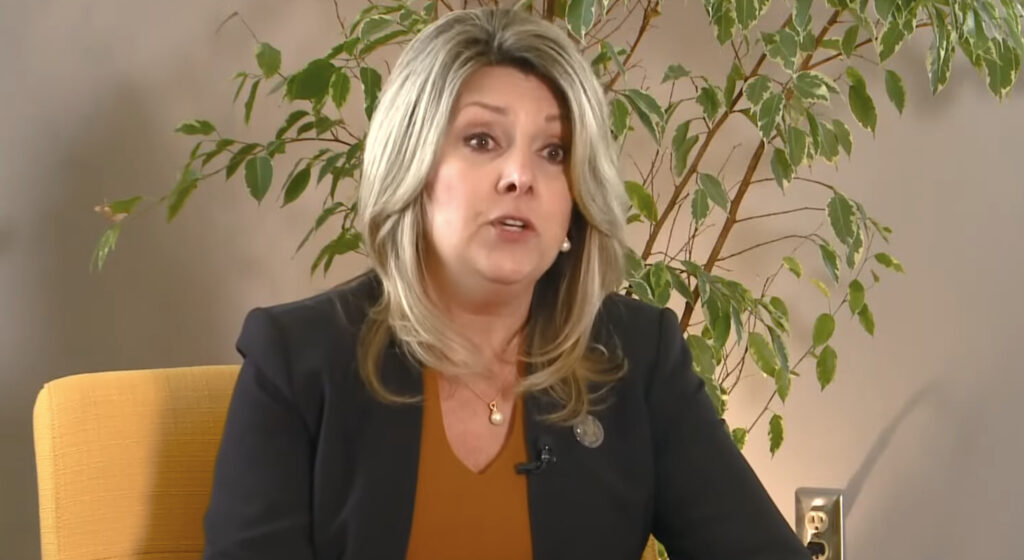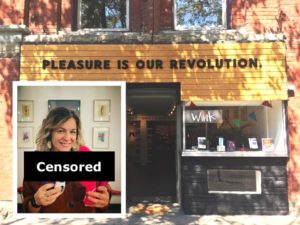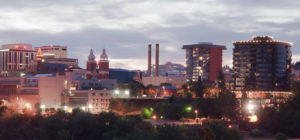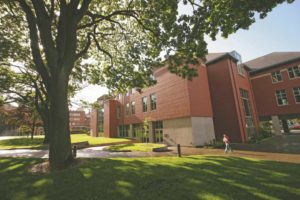Divided Spokane City Council censures mayor over appearance at worship event
(The Center Square) – A divided Spokane City Council voted 4-3 Monday night to censure Mayor Nadine Woodward for her brief on-stage appearance at a large Christian worship gathering last month…

(The Center Square) – A divided Spokane City Council voted 4-3 Monday night to censure Mayor Nadine Woodward for her brief on-stage appearance at a large Christian worship gathering last month when she received a prayer blessing from controversial former state Republican legislator Matt Shea.
Woodward, council members and others who testified criticized the measure as a political attack timed just weeks before ballots for the Nov. 7 election hit mailboxes.
The council vote concluded a five-hour meeting, from 6-11 p.m., that featured testimony from dozens of citizens – both over the resolution denouncing Woodward and a separate issue regarding city involvement with Spokane County’s regional animal protection service, or SCRAPS.
Council members Zack Zappone and Betsy Wilkerson brought the resolution against Woodward, which was also supported by Karen Stratton and council president Lori Kinnear. Council members Jonathan Bingle, Michael Cathcart, and Ryan Oelrich were opposed.
A censure carries no specific penalty. Rather, it’s a statement intended to formally rebuke the conduct, comments, or decisions of a public official.
The measure faulted the mayor for associating with Shea and Sean Feucht, organizer of the Aug. 20 Let Us Worship” gathering. The resolution said an investigation commissioned by the Washington State House of Representatives in 2019 called Shea, as leader of the Patriot Movement, a “domestic terrorist” who previously promoted political violence against the United States government, and described Feucht, a musical artists and self-professed Christian missionary, as a “known anti-LGBTQ extremist ….”
Shortly after last month’s event, Woodward issued an apology, saying she was unaware of Shea’s attendance and denouncing his ideology and political views, calling them “a threat to our democracy.”
“I am not a white nationalist,” Woodward said prior to yesterday’s council meeting. The mayor said she attended the August worship service at the request of friend and briefly took the stage during a prayer that she thought would be intended for area residents who had lost their homes to devastating wildfires two days earlier.
She believes the resolution and its timing are politically motivated by supporters of Lisa Brown, who is challenging Woodward for mayor in the upcoming November general election. Ballots will be mailed to voters in mid-October.
Monday night, Wilkerson denied that the resolution was “a political hit job” or an attempt to suppress citizens’ constitutional rights to free speech and freedom of religion. Rather, she said, it was message intended to show that the city did not condone homophobic and anti-LGBTQ statements.
Kinnear agreed, indicating the resolution was not so much about the mayor as it was about individuals who would promote hate speech. Kinnear also disclosed that the issue “was personal,” saying she had learned from local law enforcement during the 2019 investigation of Shea that he or his followers secretly had her “under surveillance.”
While other described Shea as bright, moral and good, said Kinnear, “I was afraid for my life.”
“This is not a person we should ignore … If we don’t speak out,” she said.
“People around the world think we’re an extremist community,” said Zappone. “No one in Spokane should be discriminated against … (or) feel threatened or unsafe. Mayor Woodward’s appearance was wrong, pure and simple.”
Stratton said an individual’s faith is personal, but she heard from constituents who were offended by “groups which promote hatred … It puts fear into people.”
Cathcart and Oelrich both denounced past comments made by Shea, but neither they or Bingle felt it was appropriate to proceed with the resolution against Woodward.
“I’m grateful the mayor clarified her position,” said Cathcart, but he believed that perpetuating the controversy was enabling Shea to monetize the issue through social media. “I don’t believe in giving $1.5 million to Matt Shea,” he said.
Prior to the final vote, Cathcart made a motion to publicly disclose all documents and conversation between officials and the city’s legal counsel regarding the resolution spat. City policy director Chris Wright advised against that without first talking to the attorneys, and the other council members rejected Cathcart’s proposal. Oelrich then asked to defer the vote one week in order to confer with legal counsel, but no one else supported his motion.
Bingle said he had “issues” with the resolution against Woodward, believing it contains some defamatory statements and was a “nakedly political move.”
“We doing the very thing we’re asking others not to do,” said Bingle, noting that mayoral candidate Lisa Brown had been criticized for appearing at a gathering in early May attended by a local environmental activist, Michael D. Poulin, who had been imprisoned in the 1970s on an attempted murder charge and pled guilty in 2003 to federal charges of tampering with electrical towers in northern California.
Earlier in the evening, one of the citizens testifying before the council called Poulin one of her “dearest friends” who made mistakes when he was younger but had “done good for the community” for the past 15 years. “I think forgiveness has been forgotten by the Christian right,” she said. “To see (Poulin) disparaged by Christian right is wrong.”
Like the council, many citizens in the standing-room-only audience, along with those testifying online, were divided over the resolution.
Those who defended it said Woodward’s conduct was an embarrassment to the city and that the resolution was intended to oppose discrimination rather than condemn public worship or prayer.
Those in opposition to the measure contended it was intentionally divisive and politically motivated, a waste of city time and tax dollars, evidence of religious bigotry against an event that was peaceful and uplifting to those in attendance, and an attack on the Christian faith shared by Shea and Feucht.
The meeting was interspersed with some interesting moments: one man sang an a capella rendition of “Amazing Grace,” another recited the Lord’s Prayer, and a third man invited the council to partake in a communion offering of bread and wine that he produced at the dais.
By and large, the crowd was behaved and respectful, with only a few admonitions by Kinnear over conduct and decorum, and the council was thanked by several individuals for extending the meeting to a late hour to accept testimony.



